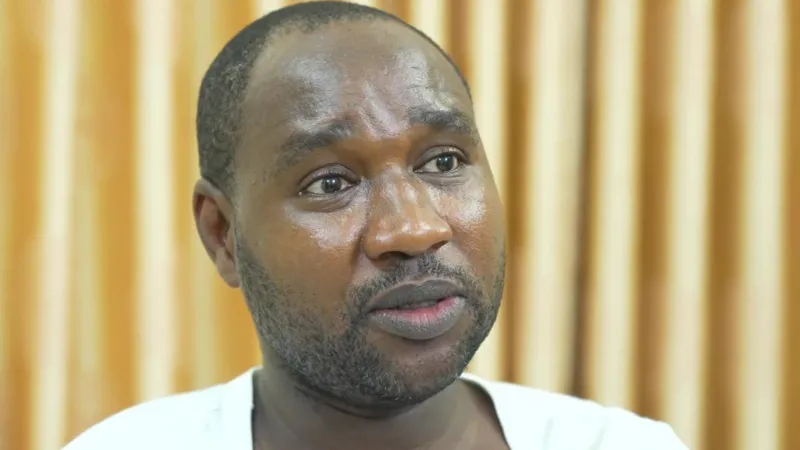
by Ola Williams-
Mubarak Bala, a prominent Nigerian atheist, has been released after serving more than four years in prison for blasphemy.
Despite his newfound freedom, his legal team is concerned for his safety, fearing that his life may still be in danger. Bala, 40, was convicted in 2022 by a court in Kano, a northern city in Nigeria, after he unexpectedly pleaded guilty to 18 charges related to a controversial Facebook post from 2020.
Speaking exclusively to the BBC in his first interview as a free man, Bala expressed his ongoing concerns: “The concern about my safety is always there,” he said, enjoying his first meal outside of prison.
In Nigeria’s deeply religious society, accusations of insulting a religion—whether Islam or Christianity—can lead to discrimination and rejection.
Blasphemy is considered a criminal offence under both Islamic law, which operates in northern states, and Nigeria’s secular criminal law.Bala, who renounced Islam in 2014, recalled the moments during his incarceration when he feared for his life.
“There were times I thought I may not get out alive,” he said. He worried about the possibility of being targeted by prison guards or fellow inmates, especially in the first facility where he was held in Kano, a predominantly Muslim city. “Freedom is here, but also there is an underlying threat I now have to face. All those years, those threats, maybe they’re out there,” he explained.
Bala’s sentence was originally set at 24 years, but it was reduced last year by an appeals court judge, who called the sentence “excessive.”
He walked out of the prison in Abuja looking tired yet cheerful, dressed in a simple white T-shirt, khaki shorts, and flip-flops, with his beaming lawyer by his side. “Everything is new to me. Everything is new,” he said as he embraced his newfound liberty.
Bala’s arrest followed a formal complaint by a group of lawyers over his Facebook post. He spent two years in detention before being convicted in 2022. His decision to plead guilty was a surprise to many, including his legal team.
However, Bala defended his choice, explaining that it helped alleviate the pressure on his supporters, including lawyers, friends, and family. “I believe what I did saved not only my life, but people in Kano—especially those attached to my case, because they are also a target,” he said.
His conviction sparked international outrage and became a focal point in the debate about freedom of speech in Nigeria. It also sent shockwaves through the country’s small atheist and humanist communities, with his release offering a sense of relief—but concerns about his safety remain.
Leo Igwe, founder of the Humanist Association of Nigeria, expressed mixed feelings about Bala’s freedom. “It’s thanks and no thanks,” he said. “Thanks that he’s out, thanks that he’s a free man. But no thanks, because there is a dent on him as if he committed a crime. For us at the Humanist Association, he committed no crime.”
Looking ahead, Bala is eager to make up for lost time, particularly with his young son, who was just six weeks old when he was imprisoned. Despite everything, Bala has no regrets.
“My activism, my posting on social media, I always knew the worst would happen. When I made the decision to come out, I knew I could be killed. I knew the dangers, and I still decided to do it.”







